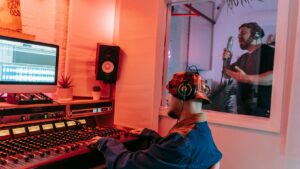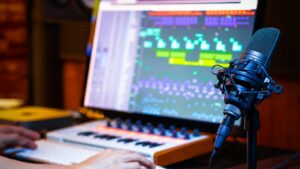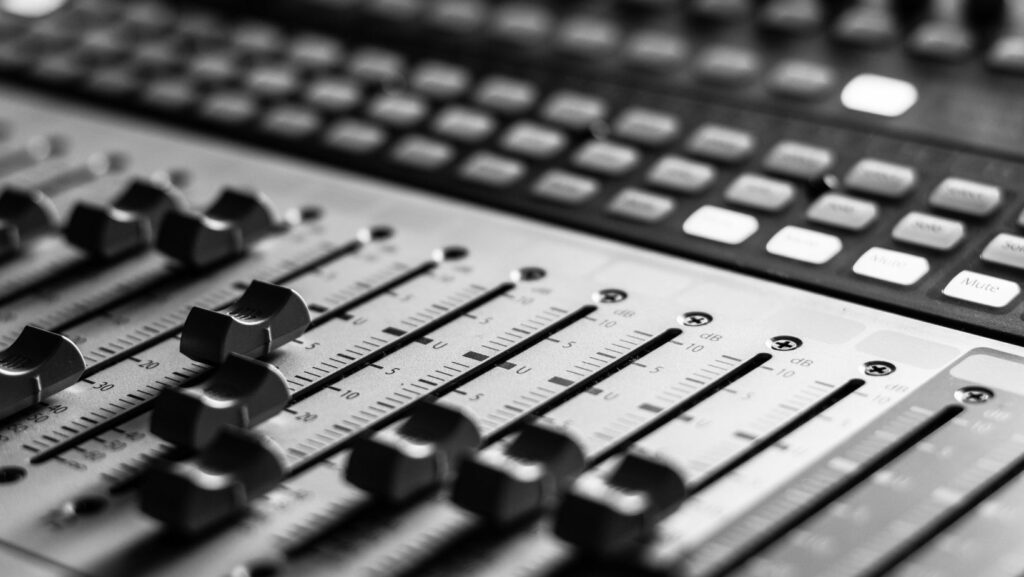Diving into the world of music production can be both thrilling and overwhelming. With the right blend of creativity and technical skills, anyone can transform their passion for music into a rewarding career. As technology continues to evolve, aspiring producers have more resources than ever at their fingertips, making it an exciting time to start.
Whether one dreams of producing chart-topping hits or creating indie masterpieces, the path to becoming a music producer is full of opportunities. It’s about embracing creativity, staying curious, and continuously honing one’s craft. With dedication and the right guidance, anyone can make their mark in the music industry.
Understanding Music Production
Music production involves creating, capturing, manipulating, and preserving sound. Each step requires creativity and technical knowledge to form a coherent and marketable piece.
What Is Music Production?

Music production blends creativity and technology to develop, record, and refine audio. It encompasses several phases, including songwriting, recording, editing, mixing, and mastering. Producers use digital audio workstations (DAWs) and various software plugins to design the sound and polish tracks. Mastery in these areas positions individuals to understand how to get into music production.
The Role of a Music Producer
A music producer guides the musical direction and technical aspects of a project. They collaborate with artists to shape the sound and manage recording sessions for optimal performance. Producers also oversee mixing and mastering, ensuring the final product resonates with listeners and meets industry standards. Understanding these responsibilities is vital for those looking to excel in music production.
How To Get Into Music Production
Aspiring music producers must balance technical prowess with creative intuition. Mastering these essential skills can pave the way for a successful journey in music production.
Technical Skills Needed

Understanding and navigating Digital Audio Workstations (DAWs) is critical. Software like Ableton Live and FL Studio enable producers to record, edit, and manipulate sounds. Knowledge of audio engineering principles enhances this capability by ensuring high-quality sound production. Mastering involves balancing the audio track’s frequency spectrum and dynamics, a key skill for finalizing tracks. Familiarity with music theory is beneficial, as it supports composition and arrangement tasks. Proficient use of plugins, effects, and virtual instruments expands creative possibilities within projects.
Creative Skills Required
Creative vision guides the development of original and captivating music. Compositional skills enable producers to craft unique melodies and harmonies. An ear for sound design involves creating distinctive audio elements through synthesis and sampling. Improvisation fosters spontaneity, allowing producers to innovate during recording and mixing sessions. Collaboration skills enhance the ability to work with artists, musicians, and sound engineers, ensuring cohesive audio production. Staying open to inspiration and adapting to new trends keeps the creative process fresh and relevant.
Exploring Music Production Software
Selecting the right music production software is essential for any aspiring producer. It provides the tools necessary to compose, edit, and mix tracks, making it a crucial component of the production process.

Digital Audio Workstations (DAWs)
Digital Audio Workstations (DAWs) are central to music production. They offer features such as multi-track recording, MIDI support, and comprehensive editing capabilities. Popular DAWs like Ableton Live and Logic Pro are favored for their user-friendly interfaces and advanced functionalities. These platforms support beginners and professionals alike in creating high-quality music. When considering how to get into music production, understanding and mastering a DAW is a critical step.
Plugins and Virtual Instruments
Plugins and virtual instruments expand the capabilities of a DAW, enabling producers to access a vast array of sounds and effects. Synthesizers, samplers, and effects plugins like Native Instruments’ Massive and Waves’ reverb enrich the music creation process.
Embarking on a journey into music production offers a blend of creativity and technical mastery. With the right tools and resources, aspiring producers can transform their passion into a successful career. Building a strong brand and networking effectively opens doors to collaboration and growth. With dedication and a continuous learning mindset, anyone can thrive in the dynamic world of music production.



